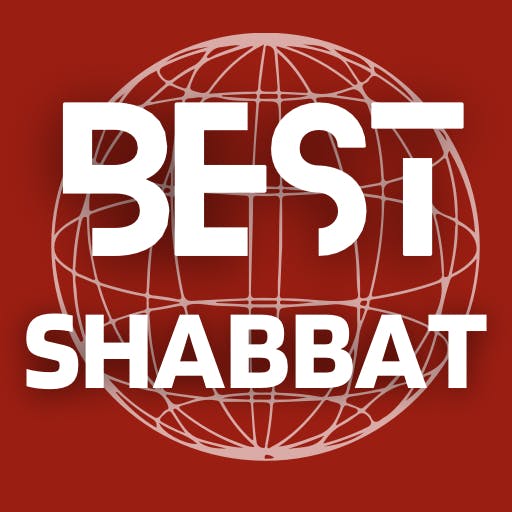Trust, Betach בָּטַח
David Mitts
“The LORD is my strength and my shield; My heart trusts in Him, and I am helped; Therefore, my heart exults, And with my song I shall thank Him.” (Psa 28:7, NAS95)
Giving Opportunity Message
The center of the gospel is trust or what we call faith. When we trust in God, He is able to help us. It may seem strange that God requires our trust to work on our behalf but that is what the salvation of Yeshua is all about, trusting in Him and His goodness and love.
Gesenius' Hebrew-Chaldee Lexicon to the Old Testament defines the word "trust" in this way: "to set one's hope and confidence upon" and "to be secure fearing nothing." It is also frequently translated as "confidence," "security," and "hope."
Let’s look at the Hebrew word pictures to get a deeper perspective.
The Word is betach. In modern Israel, the word is used commonly to say “it’s a sure thing” or ”absolutely”. It is made up of 3 letters, the bet, the tet, and the chet.
The bet is the picture of a tent or a house. It is the invitation to come inside and is also the first letter of the most intimate relationship, the covenant, “brit”. When we grasp the significance of covenant, which is the absolute dependence of one person on the character, protection and provision of another we realize the depth of this invitation as the first letter of trust, betach.
In is the power of the word in or inside. Think of how you feel when you come inside out of the storms of the world. The Bible begins with a bet, an invitation to come into God’s creation.
“In the beginning God created the heavens and the earth. The earth was formless and void, and darkness was over the surface of the deep, and the Spirit of God was moving over the surface of the waters. Then God said, "Let there be light"; and there was light. God saw that the light was good; and God separated the light from the darkness. God called the light day, and the darkness He called night. And there was evening and there was morning, one day.” (Gen 1:1-5, NAS95)
It is also where we get the term “in Christ”. This is an invitation to come into covenant with Messiah. He is inviting us into His house to be under His protection as His child. This is explained by Paul in many ways but the clearest is in Ephesians 2
“And you were dead in your trespasses and sins, in which you formerly walked according to the course of this world, according to the prince of the power of the air, of the spirit that is now working in the sons of disobedience. Among them we too all formerly lived in the lusts of our flesh, indulging the desires of the flesh and of the mind, and were by nature children of wrath, even as the rest.” (Eph 2:1-3, NAS95)
This is the place of non-covenant and actually seen as children of wrath by God, fit for eternal judgment.
“But God, being rich in mercy, because of His great love with which He loved us, even when we were dead in our transgressions, made us alive together with Christ (by grace you have been saved), and raised us up with Him, and seated us with Him in the heavenly places in Christ Jesus,” (Eph 2:4-6, NAS95)
Even though we were, “dead in our transgressions”, He loved us and invited us into His home, sharing His life with us through the Holy Spirit, and in that resurrected us from the death of this world and seated us in His home, the heavens in Christ, which is in covenant with Him. This is the picture of the Bet of Betach.
Next we have the tet. The second letter of the Hebrew word for trust, betach, is "tet." It is a picture of something wrapped or coiled like a snake, or it can be like a basket in terms of its weave. The wrapping concept relates to a baby's being swaddled and wound tightly in a blanket. It seems to be soothing for babies to be bundled in this way. Biblically, to be unswaddled was likened to abandonment.
“As for your nativity, on the day you were born your navel cord was not cut, nor were you washed in water to cleanse you; you were not rubbed with salt nor wrapped in swaddling cloths.” (Ezk 16:4, NKJV)
Tet is also the first letter of “tov” which means good. It reveals that we are wrapped by the goodness of God when we trust in Him.
“Oh, taste and see that the LORD is good; Blessed is the man who trusts in Him!” (Psa 34:8, NKJV)
The final letter is the chet, which we have spoken of previously as the picture of the fence that protects. "Chet" differs in thought from "bet" because it speaks more of boundaries. Our part of trusting God as it concerns this letter is for us to stay within the limits of God's purpose and plan. God is not obligated to protect us when we step outside those fences He has built for our protection. The promise of these protections is for the faithful, believing, and obedient.
Isaiah describes this relationship:
“Thus says the LORD: "Keep justice, and do righteousness, For My salvation is about to come, And My righteousness to be revealed. Blessed is the man who does this, And the son of man who lays hold on it; Who keeps from defiling the Sabbath, And keeps his hand from doing any evil." Do not let the son of the foreigner Who has joined himself to the LORD Speak, saying, "The LORD has utterly separated me from His people"; Nor let the eunuch say, "Here I am, a dry tree." For thus says the LORD: "To the eunuchs who keep My Sabbaths, And choose what pleases Me, And hold fast My covenant, Even to them I will give in My house And within My walls a place and a name Better than that of sons and daughters; I will give them an everlasting name That shall not be cut off.” (Isa 56:1-5, NKJV)
The very first occurrence of the word betach in Scripture illustrates this in its negative form. God informs His children that to live in direct disobedience to Him through a lack of trust will cause those walls of protection to come down.
“"They shall besiege you at all your gates until your high and fortified walls, in which you trust, come down throughout all your land; and they shall besiege you at all your gates throughout all your land which the LORD your God has given you.” (Deu 28:52, NKJV)
One of the words that appears in Scripture to mean compassion, mercy (God's faithful, loyal love), and favor, is chesed. This word also begins with the letter "chet."
“Many sorrows shall be to the wicked; But he who trusts in the LORD, mercy shall surround him.” (Psa 32:10, NKJV)
When we trust in God, we receive His favor and His kindness because we are under His covenant love.
The three Hebrew letters that form the word betach convey the ideas of being on the inside, embraced, and protected.
Combining these ideas into a unified concept, we can understand this word to mean that trusting God is abiding and resting in Him by discerning His goodness and greatness. In so doing, we are protected, embraced, and surrounded by His covenant love compassion and favor.
“For You, O LORD, will bless the righteous; With favor You will surround him as with a shield.” (Psa 5:12, NKJV)
And finally we see:
“Trust in the LORD with all your heart, And lean not on your own understanding; In all your ways acknowledge Him, And He shall direct your paths.” (Pro 3:5-6, NKJV)
Betach, trust is really a covenant action. We trust God like we learn to surrender our heart in covenant to our love. This is really the heart behind the gospel, surrendering to Him and entering into His love relationship.
Activation: Learning to surrender and trust. Ask the Lord to reveal to you where you need to surrender to experience His love and faithfulness.
Related
Heading
To add this web app to your homescreen, click on the "Share" icon
![]()
Then click on "Add to Home"

To add this web app to your homescreen, click on the "Share" icon
![]()
Then click on "Add to Home"

It looks like your browser doesn't natively support "Add To Homescreen", or you have disabled it (or maybe you have already added this web app to your applications?)
In any case, please check your browser options and information, thanks!
It looks like your browser doesn't natively support "Add To Homescreen", or you have disabled it (or maybe you have already added this web app to your applications?)
In any case, please check your browser options and information, thanks!
